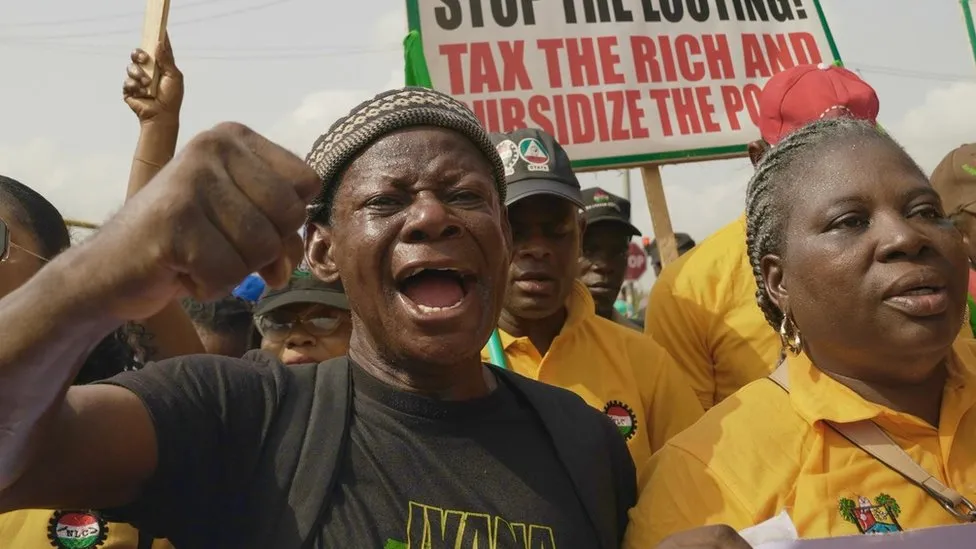 |
| Government policies have worsened the economic crisis, trade unions say. GIFT UFUOMA/BBC |
Nigeria is currently facing its worst economic crisis in a generation, leading to widespread hardship and anger. The Nigeria Labour Congress (NLC) has organized nationwide protests on Tuesday, calling for more action from the government. Annual inflation is now close to 30%, the highest figure in nearly three decades, and the cost of food has risen even more by 35%. However, the monthly minimum wage, set by the government and all employers are supposed to observe, has not changed since 2019, when it was put at 30,000 naira, which is worth just $19 (£15) at current exchange rates.
Many Nigerians are going hungry, rationing what food they have or looking for cheaper alternatives. In the north, some people are now eating the rice that is normally discarded as part of the milling process, which usually goes into fish food. Widely shared social media videos indicate how some are reducing portion sizes.
Inflation has soared in many countries, as fuel and other costs spiked due to the war in Ukraine. President Bola Tinubu's efforts to remodel the economy have also added to the burden. On the day he was sworn in nine months ago, the new president announced that the long-standing fuel subsidy would be ending, which had kept petrol prices low for citizens but was also a huge drain on public finances. The subsequent huge jump in the price of petrol has caused other prices to rise as companies pass on transportation and energy costs to the consumer.
One other factor pushing up inflation is an issue that Mr. Tinubu inherited from his predecessor, Muhammadu Buhari. He told the BBC's Newsday programme that the previous government had asked the country's central bank for short-term loans to cover spending amounting to $19bn. The bank printed the money, which helped fuel inflation.
Mr. Tinubu also ended the policy of pegging the price of the currency, the naira, to the US dollar rather than leaving it up to the market to determine on the basis of supply and demand. This has led to the naira's value plummeting by more than two-thirds, briefly hitting an all-time low last week.
While the president is unlikely to reverse his decisions on the fuel subsidy and the naira, the government has introduced measures to ease the suffering. Nigeria's Vice-President Kashim Shettima announced the establishment of a board charged with controlling and regulating food prices, and the national grain reserve was ordered to distribute 42,000 tonnes of grains, including maize and millet.


